Welcome fren! How long does Bitcoin take to send? It depends. An annoying answer we know, why can’t there just be a simple one line answer! But in Bitcoin land transactions are done a bit differently and for good reasons!
You have to understand the simple process, as otherwise you’ll be literally flushing your bitcoins down the toilet.
Contents
How Long Does Bitcoin Take To Send?
Bitcoin transactions are generally considered completed once they have been confirmed in 1-6 blocks. As each block on average takes 10 minutes to be confirmed into a new block by the Bitcoin Mining process, this means your transaction will take anywhere from 0-60 minutes on average to be completed.
You can confirm that someone has sent you your bitcoins virtually instantly as transactions are broadcast to the entire network openly. We have a full guide outlining exactly how to do this in our How To Confirm A Bitcoin Transaction post. However it can take a few minutes for that broadcast transaction to be “confirmed” and locked into the Blockchain forever.
How Do Bitcoin Transactions Work?
As the Bitcoin network is a public, open protocol, you don’t login to a central authority like a bank website when sending a transaction. Instead, you use a Bitcoin Wallet to broadcast your transaction to the Bitcoin network.
First your wallet software signs the transaction using your Private Key. This lets the network know that you have the right to spend those bitcoins and that you’re reassigning ownership of your bitcoins to someone else.
After this, your Bitcoin wallet software connects to a Bitcoin Node and broadcasts your transaction to the network.
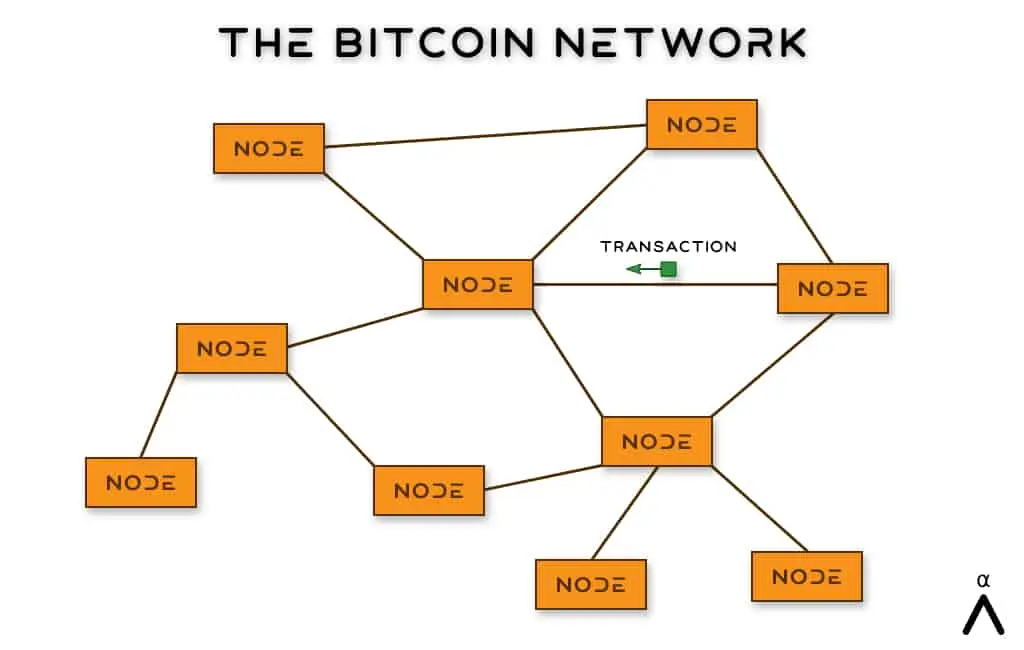
As your new transaction is received by other nodes, they also share it with all their peers until the entire network has a copy of it.
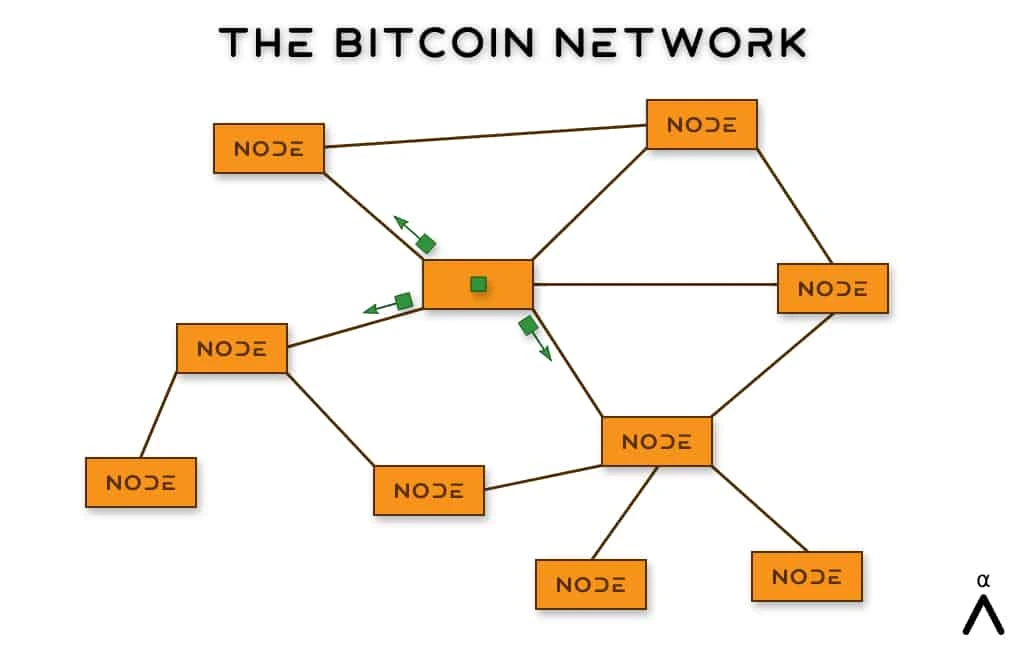
As each node receives the new transaction, they place it into their mempool for processing.
Factors That Influence Bitcoin Transactions
The main things that influence the speed of a Bitcoin transaction are:
- How busy the Bitcoin Mempool is
- The Bitcoin Transaction Fees that you set
- The hash rate of the Bitcoin network
As the hash rate is relatively stable – at least over short periods of time – this means that the biggest factors are how full the mempool is and what you set the fee to.
What Is The Bitcoin Mempool?
Once nodes receive your transaction it goes into what’s called the memory pool or “mempool” for short. The Mempool is where all Bitcoin transactions go to get confirmed into the blockchain.
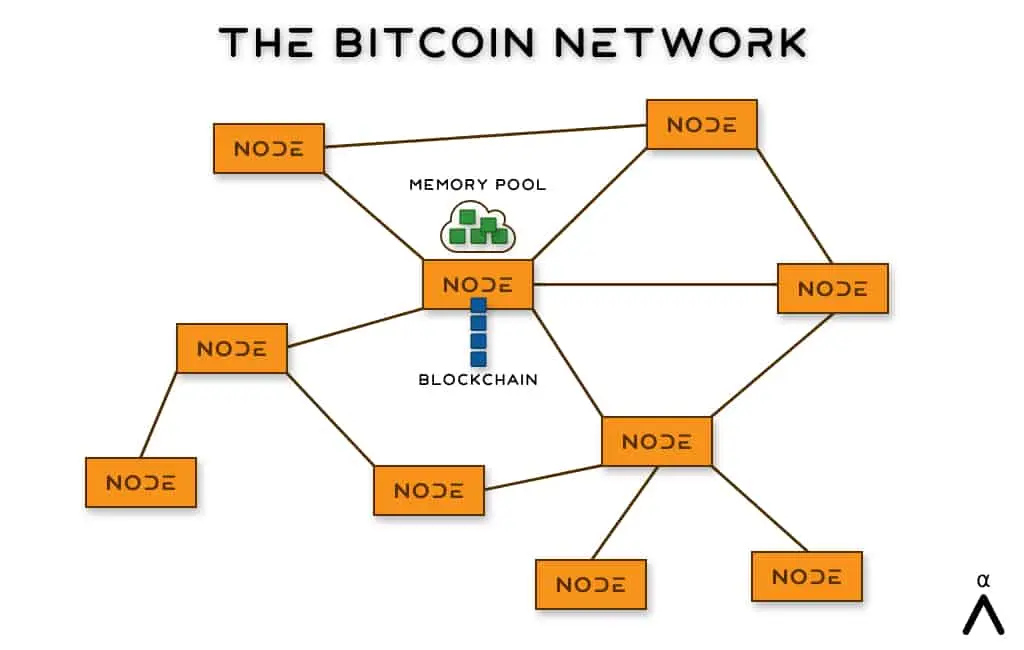
Bitcoin Miners take transactions from this mempool and bundle them together into a block when they mine it. Once your transaction has been confirmed into a block on the blockchain it is stored there forever.
Mempool.space is an excellent resource for watching and understanding this process as it gives you a live, visual show of what’s going on.
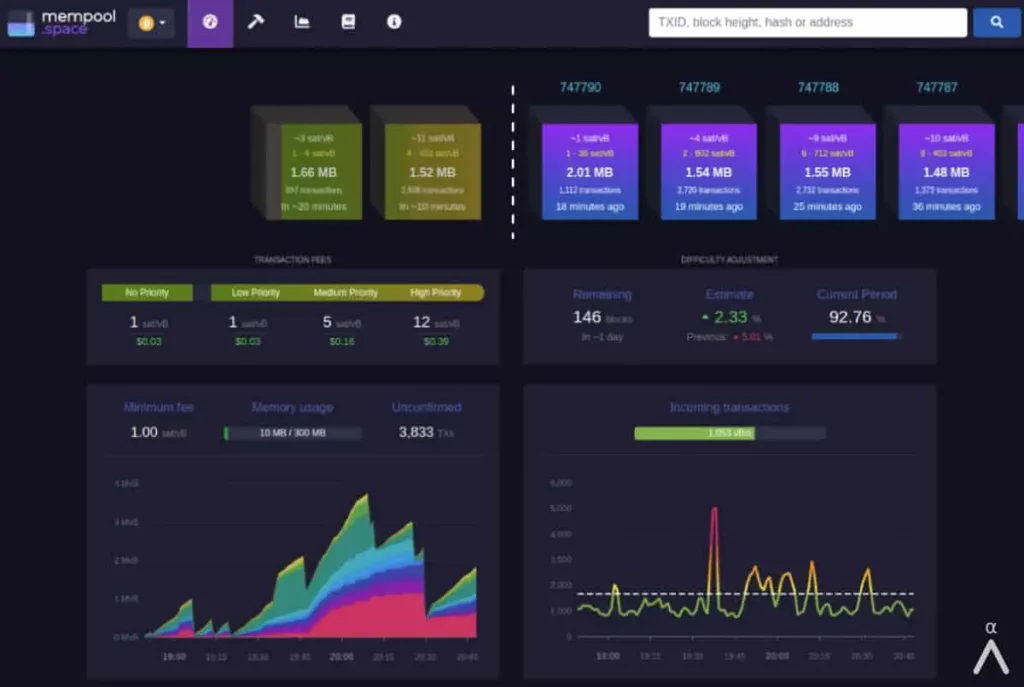
In it you can see all the pending Bitcoin transactions in the top left (the yellow/green blocks) being grouped together in what miners think will be the next block. In the top right (the purple/blue blocks) are all the confirmed blocks in the blockchain.
New to Athena Alpha? Start today!
Bitcoin Transaction Fees
Bitcoin Mining is the process of adding transactions to the Bitcoin blockchain.
To perform this mining process a miner needs to expend a lot of computer processing power or “work” which costs money. As such, each Bitcoin transaction usually requires a fee (paid in bitcoins) to process it.
While most banks or other institutions have set fees that you cannot choose or change, with Bitcoin you get to set the fee for every transaction. The higher the fee, the better chance the transaction has to be included in the next mined block.
You can even set a fee of zero and there is a chance it will still be processed when the network use is low. A fee of at least 1 Satoshi is recommended though so the transaction doesn’t get stuck.
>> Learn More: Where Do Bitcoin Transaction Fees Go? and How Bitcoin Transaction Fees Work
Bitcoin Transaction Confirmations
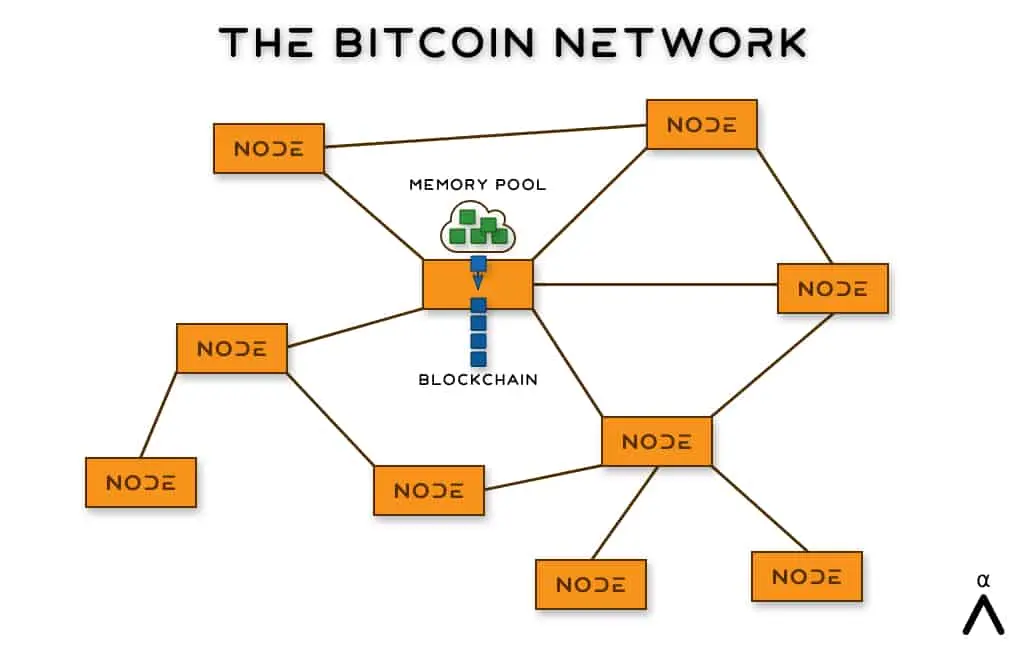
Once your transaction has been mined into a block it’s considered “confirmed” and “1” block deep. The deeper your transaction goes, the harder it is for anyone to change the transaction.
This is because as blocks get stacked on top of each other, a person wanting to do something dodgy would have to re-mine not only that block, but all the ones on top of it too in order to change your transaction. Thus, the deeper it goes, the harder it is to change.
How Many Confirmations Is Needed For A Bitcoin Transaction?
If you’re simply buying something for $5 like a coffee, then it’s pretty unlikely that someone is going to spend huge amounts of time, money and energy to screw you out of your money. However, if you’re transferring $1,000 then it’s recommended to wait until your transaction has been confirmed in 3-6 blocks.
The industry has generally agreed that once a transaction has been confirmed 6 blocks deep, it’s virtually impossible to alter ever again. It would take an enormous attack with huge compute capabilities to reorder the Bitcoin blockchain even 6 blocks deep.
How To Check Bitcoin Transaction Times
There are a number of tools out there you can use to estimate how long a Bitcoin transaction will take to send given a specific fee paid. Mempool.space has its own fee estimator section as seen below.
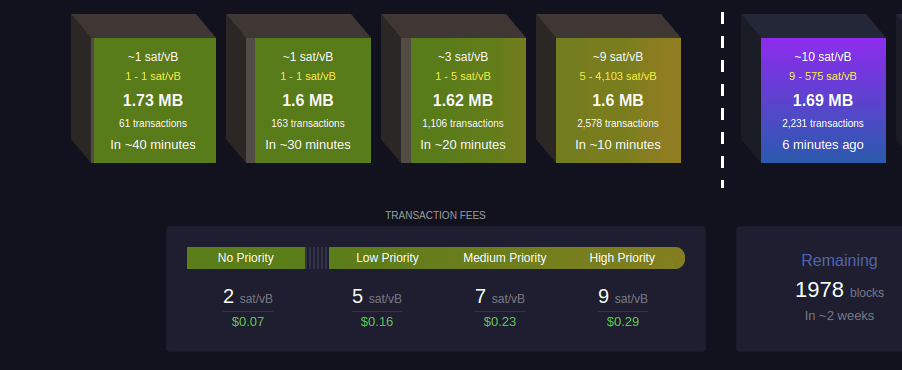
Other good sites include Bitcoin Fees or Privacy Pros plus you can even host your own Mempool.space as it’s entirely free and open source software.
How To Speed Up Bitcoin Transactions
Due to the Bitcoin Mining process, you have no control over when the next block will be mined as the time it takes for a block to be mined is completely random. On average it’s 10 minutes, but it can also take 1 minute or even 122 minutes (the longest mined block ever).
The only thing you can do to speed up your transaction is ensure the fee you set is high enough to put your transaction in the next block, however long that will take to mine.
Will Bitcoin Transactions Ever Be Faster?
Don’t believe the ridiculous Bitcoin Myths that “transactions are slow”. Thanks to Layer 2 scaling protocols like the Lightning Network (which has no fundamental limits to the amount of transactions per second it can handle) and other upgrades such as batched transactions Bitcoin is gradually overcoming its speed issue.
The Athena Assessment
Bitcoin transactions are handled quite differently to legacy financial ones, so it often causes quite a bit of confusion to beginners. Make sure you always check what the fees should be as otherwise you’ll likely be overpaying for no reason.
One final important thing to remember is that you’re not “sending” your bitcoins from your wallet to the other persons wallet. The bitcoins are in the Bitcoin network and remain in there even after the transaction. When the transaction is broadcast, the bitcoins don’t actually move, instead the ownership of them changes.
FAQ
How Long Does Bitcoin Take To Send?
99.99% of the time, assuming you’ve set your fee correctly, your transaction will take between 7 minutes and 4 hours to get from 1-6 blocks deep.
How Long Can A Bitcoin Transaction Stay Unconfirmed?
If you set your Bitcoin Transaction Fee too low it can remain unconfirmed for days or even months. If the network is continuously busy – especially during bull markets – and the fee you set is lower than everyone else then it won’t get confirmed until things cool down, but this can take a long time!
How Long Does It Take To Send Bitcoins From Coinbase?
An exchange wallet (such as Coinbase) is still just a Bitcoin Wallet and has no bearing on how long the transaction takes. Coinbase usually sets their fees so that the transaction is included in the next block, meaning it should only take about 10 minutes.
Why Is My Transaction Still Pending On The Blockchain?
The most likely reason is because you haven’t set your Bitcoin Transaction Fee high enough, or that the network suddenly got busier than before. If that’s not the case then it’s possible your transaction failed or used an invalid address.
Can You Send Bitcoin From One Exchange To Another?
Yes. An exchange wallet is still just a Bitcoin Wallet. Check out our guide How To Send Bitcoin for simple step-by-step instructions.
What If You Send Bitcoin To An Invalid Address?
If you send your bitcoins to an invalid address, then it will just be ignored and you’ll still have your bitcoins. However, if you send your bitcoins to a valid (but wrong) address, then it will be processed by the network and your bitcoins will be gone. For more information about addresses, check out our piece What Is A Bitcoin Address?
Does SegWit Decrease Confirmation Times?
Technically the answer is no. Segregated Witness (SegWit) is a type of Bitcoin Address that helps to reduce the size (in kilobytes) of your transaction.
While this doesn’t change the confirmation time, it does make the transaction smaller and thus, cheaper. So if you were to spend the same fee on a SegWit transaction (vs a transaction using a P2SH address) it will increase the chances of it ending up in the next block and being confirmed faster.
How Do I Get A Stuck Transaction Unstuck?
If your transaction is stuck in the mempool you can use either a Replace-by-Fee (RBF) or Child-Pays-for-Parent (CPFP) transaction. RBF is currently the best way to clear your transaction.



